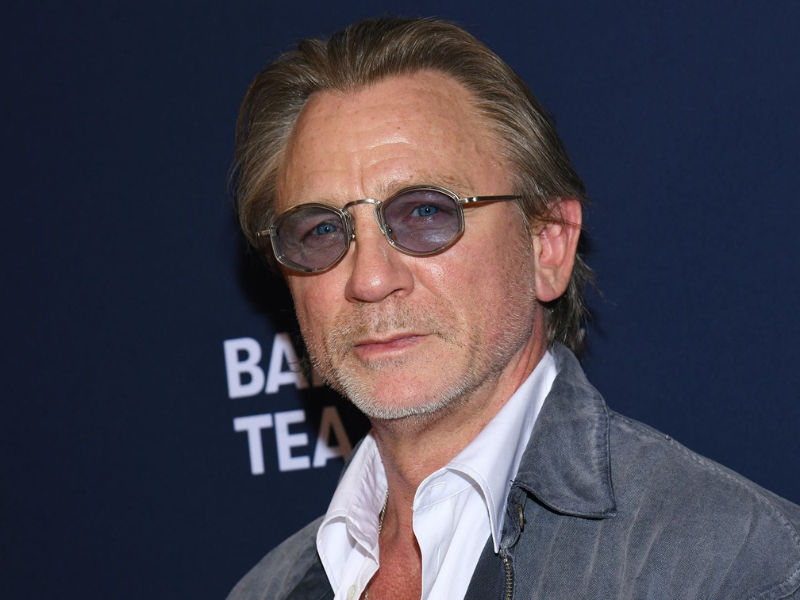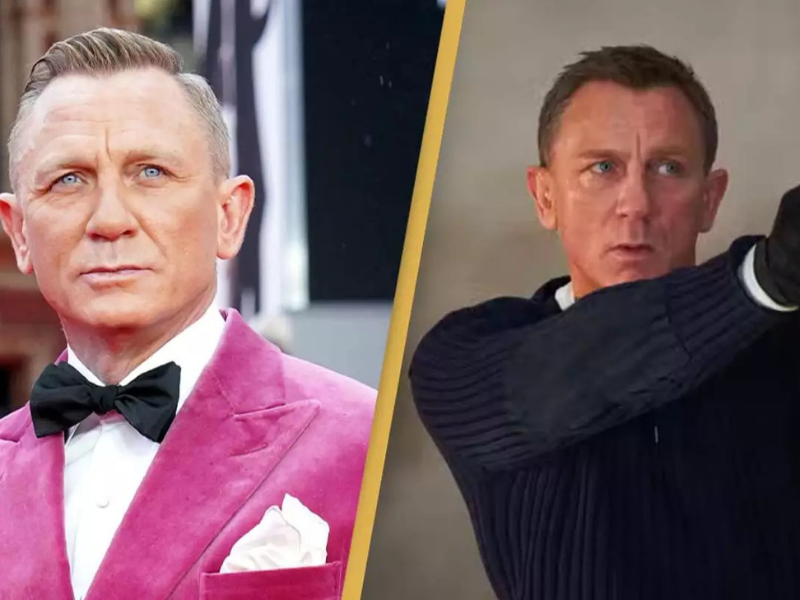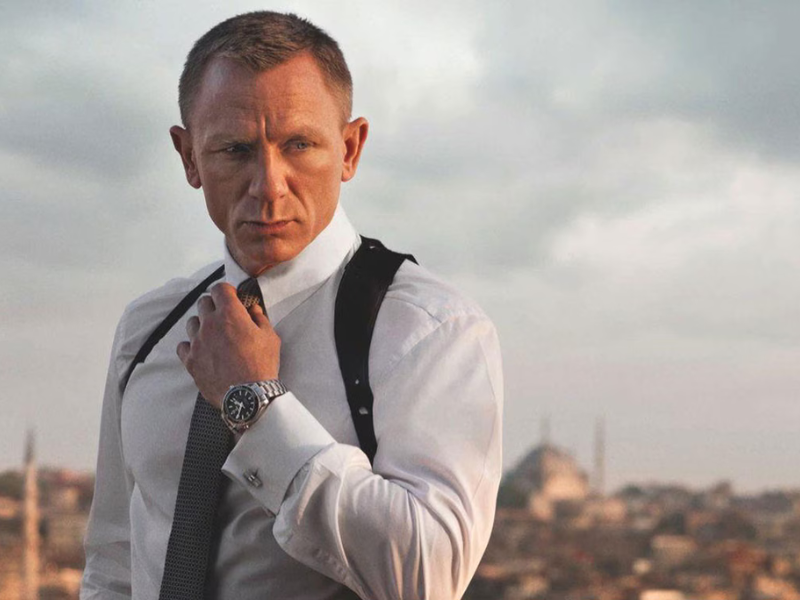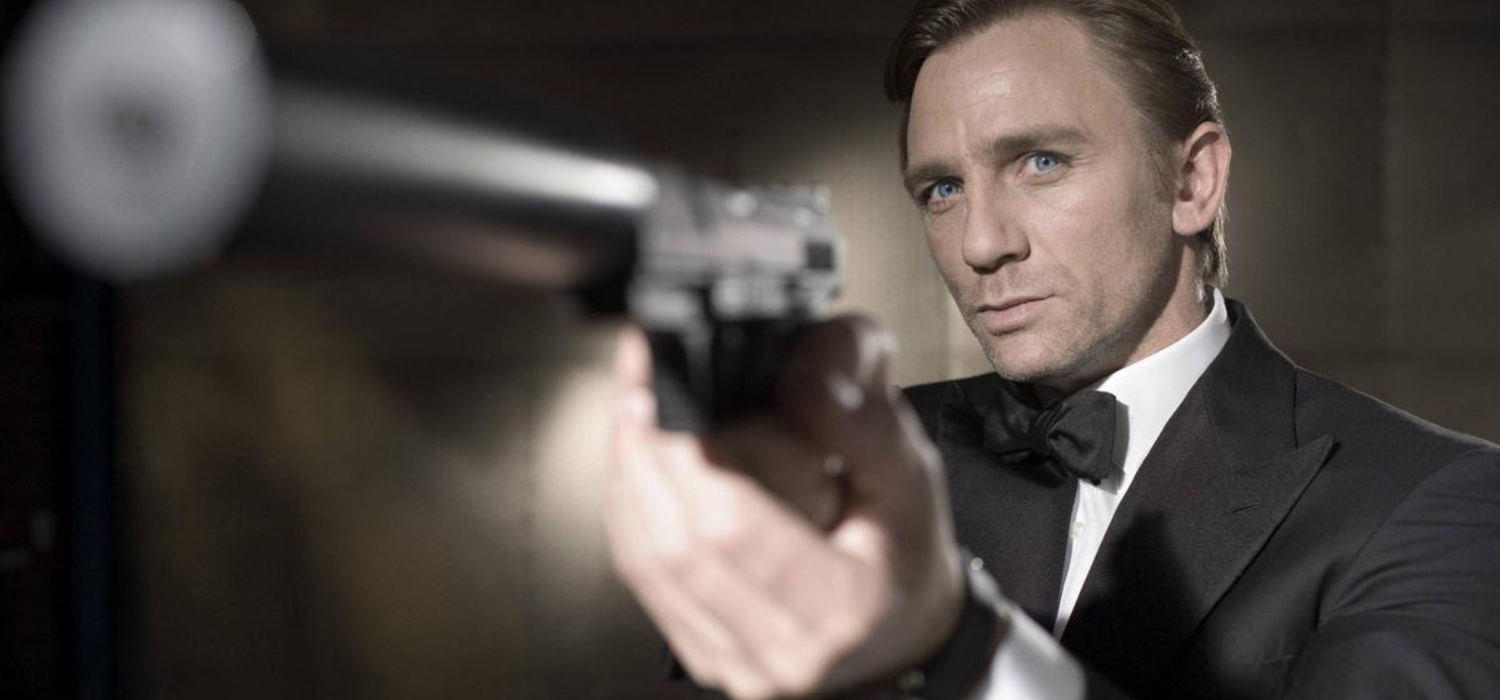Introduction: A British Icon in Global Cinema
Daniel Craig is one of the most recognizable names in modern cinema. Known worldwide for his portrayal of James Bond, Craig has become a symbol of British excellence on screen. But beyond the tuxedo and the Aston Martin, Craig represents something larger—the global influence of UK actors who have transitioned seamlessly from London stages to Hollywood blockbusters.
The story of British talent in Hollywood is not new. For decades, actors from the United Kingdom have made their mark in the United States, blending classical training with raw charisma. Daniel Craig, however, stands at the center of a new era. His rise coincides with a growing wave of UK actors dominating both mainstream franchises and independent films.
This blog explores the journey of Daniel Craig and his contemporaries, examining how UK actors have redefined Hollywood cinema. From Craig’s breakout roles to collaborations with fellow British icons, this narrative showcases the powerful fusion of London’s theatrical roots and Hollywood’s star-making machine.
Daniel Craig: Beyond James Bond
Early Struggles and Breakthroughs
Daniel Craig’s career did not begin with instant fame. Born in Chester, England, Craig trained at the Guildhall School of Music and Drama in London. Like many UK actors, he worked tirelessly in theatre and small television roles before breaking into mainstream cinema. His performances in independent films such as Some Voices (2000) and Layer Cake (2004) demonstrated his intensity and range, laying the groundwork for his future success.
The James Bond Legacy
In 2006, Craig redefined one of the most iconic roles in film history—James Bond. Casino Royale introduced audiences to a grittier, more emotionally complex Bond, diverging from the suave charm of previous portrayals. Craig’s interpretation combined vulnerability with strength, earning critical acclaim and commercial success. Over the next decade, he starred in four more Bond films:
- Quantum of Solace (2008)
- Skyfall (2012)
- Spectre (2015)
- No Time to Die (2021)
Through this role, Craig not only revitalized the Bond franchise but also became a global ambassador for British cinema. His influence helped spotlight other UK actors who were breaking into Hollywood at the same time.
Life Beyond 007
Craig has consistently sought roles outside of Bond to showcase his versatility. His performances in The Girl with the Dragon Tattoo (2011), Logan Lucky (2017), and Knives Out (2019) proved his ability to tackle comedy, drama, and mystery with equal skill. By doing so, Craig joined a growing list of British actors who successfully avoid being typecast by one iconic role.
UK Actors Taking Over Hollywood
While Daniel Craig became an international superstar, he is part of a broader wave of British actors making their mark in Hollywood. Trained in theatre, steeped in tradition, and equipped with unmatched versatility, these actors are redefining the global entertainment industry.

London’s Theatrical Roots and Hollywood Stardom
A defining characteristic of UK actors in Hollywood is their foundation in theatre. Unlike many of their American counterparts, British performers often begin their careers on stage. Daniel Craig, for instance, performed in Shakespearean productions before transitioning to film.
The RSC and Drama Schools
Institutions such as the Royal Shakespeare Company (RSC), Guildhall School of Music and Drama, and Royal Academy of Dramatic Art (RADA) have trained generations of actors who now dominate Hollywood. This classical foundation gives British performers a distinctive edge, allowing them to bring depth and gravitas to screen roles.
The Cultural Crossover
Hollywood often seeks actors who can deliver both style and substance. UK actors, with their theatre-based discipline and adaptability, fulfill that demand. Daniel Craig’s Bond, Cumberbatch’s Doctor Strange, and Elba’s Heimdall are examples of characters shaped by this unique training.
Collaborations that Redefined Cinema
Daniel Craig’s Hollywood journey has been enriched by collaborations with other UK actors, further highlighting the strength of British talent.
Knives Out and Ensemble Brilliance
Craig’s role as Benoit Blanc in Knives Out showcased his comedic timing and accent flexibility. While most of his co-stars were American, the success of this ensemble film mirrored the kind of storytelling tradition found in British theatre—actors working together to elevate a narrative.
British Power in Franchises
From Harry Potter to Star Wars, UK actors have dominated global franchises. Daniel Craig himself even made a cameo as a Stormtrooper in Star Wars: The Force Awakens. This crossover reflects the interconnectedness of British and American cinema.
The Next Wave of Collaborations
With streaming platforms investing heavily in British talent, collaborations between actors like Craig, Cumberbatch, Patel, and Brown are increasingly likely. These projects will continue bridging London and Hollywood, offering audiences fresh narratives enriched by diverse talent.
The Influence of James Bond on UK Actors
Daniel Craig’s Bond era has had a profound ripple effect. His gritty portrayal of 007 inspired other British actors to embrace more nuanced, layered roles in Hollywood.
Shaping Masculinity on Screen
Craig’s Bond moved away from the invincible, emotionless spy archetype. Instead, he portrayed vulnerability, trauma, and human complexity. This shift influenced portrayals of masculinity in cinema, opening doors for actors like Tom Hardy and Richard Madden to explore flawed yet compelling characters.
Raising Global Visibility
The success of Craig’s Bond also amplified the global demand for British actors. Hollywood casting directors increasingly looked to the UK for talent capable of carrying major franchises, fueling the rise of a new generation.
Thoughts
Daniel Craig embodies the modern British actor’s journey: grounded in London theatre, elevated by global franchises, and constantly reinventing his craft. Yet, he is not alone. Alongside him stands a generation of UK actors whose versatility and discipline have reshaped Hollywood.
Bond and Beyond: The Expanding Careers of UK Co-Stars
While Daniel Craig has been the central figure of the Bond universe, the films also opened doors for other UK actors. Naomie Harris, who plays Moneypenny, transformed the character into a strong, modern, and independent figure. Her chemistry with Craig gave audiences a fresh perspective on a role that had often been relegated to the background. Harris later went on to receive acclaim for her performances in films like Moonlight, proving how Bond became a springboard for her career.
Similarly, Rory Kinnear, who played MI6’s Bill Tanner, became a recognizable face for international audiences. Though often understated, his presence alongside Craig gave Bond’s world a sense of camaraderie and realism. These performances highlight how supporting UK talent shined in the Craig-led era.
The Global Stage: UK Actors Transitioning to Hollywood
Daniel Craig isn’t the only UK actor making waves in Hollywood. In fact, many of his co-stars have seamlessly crossed from London stages to blockbuster sets in Los Angeles. Take Ben Whishaw, for example. Known for his role as Q, the brilliant tech mastermind, Whishaw brought a quiet humor and vulnerability to the films. His Hollywood journey extended beyond Bond, with roles in Cloud Atlas and Mary Poppins Returns, giving him both critical respect and mainstream appeal.
Craig’s collaborations served as bridges, helping British actors find visibility in the global film industry. They showcased how talent from the UK could not only hold their own but often elevate the storytelling in Hollywood.
Daniel Craig and the Evolution of UK Stardom in America
Before Craig took up the mantle, many believed that James Bond was larger than the actor himself. However, his portrayal redefined how UK actors could command Hollywood’s attention. His gritty, more human interpretation of 007 showed that audiences were ready for complex characters, not just slick suits and gadgets.
This evolution made Craig not just a Bond actor, but a Hollywood star in his own right. His success made casting directors look more toward the UK for actors who could bring depth, intensity, and charisma to leading roles. In this sense, Craig paved the way for the next generation of British stars to make their mark internationally.
The Magic of On-Screen Chemistry
One of the reasons Daniel Craig’s Hollywood journey felt so impactful was his ability to generate real chemistry with fellow actors. Whether it was the tense mentorship-like relationship with Judi Dench’s M, the loyal but sharp rapport with Harris’s Moneypenny, or the delicate yet dangerous romance with Eva Green’s Vesper Lynd, Craig’s performances allowed other UK talents to shine alongside him.
Hollywood often thrives on chemistry between actors, and Craig demonstrated how UK actors could seamlessly blend into American-driven narratives without losing their unique identity. It wasn’t just about playing a role; it was about building moments that audiences would remember long after the credits rolled.

Stepping Outside of Bond: UK Actors Exploring New Horizons
After years of being associated with 007, Craig and his UK co-stars began exploring very different roles. Daniel Craig himself ventured into unexpected territory with Knives Out, a quirky mystery that showcased his comedic timing and southern American accent—far removed from his Bond persona. The film’s success, and its sequel Glass Onion, reaffirmed his Hollywood appeal outside the spy franchise.
Meanwhile, Naomie Harris explored social dramas and superhero franchises, Ben Whishaw dabbled in independent films and voice work, and Ralph Fiennes continued to balance blockbuster roles with Shakespearean gravitas. Together, they highlighted how UK actors were not limited to one type of role but capable of excelling across genres.
Redefining British Talent in the Global Market
What Daniel Craig and his co-stars achieved was more than just box office success—it was the redefinition of British talent in global cinema. For decades, Hollywood often cast British actors in stereotypical roles: villains, royalty, or period drama figures. But with Craig and his generation, that mold was broken. UK actors became action heroes, comedic leads, and complex protagonists with worldwide appeal.
The Legacy of Craig’s Bond Era
Daniel Craig’s Bond era is already considered one of the most influential in the franchise’s history. His five-film run—beginning with Casino Royale and concluding with No Time to Die—reshaped not only James Bond but also the way Hollywood perceived UK actors. By grounding Bond in realism, Craig proved that British talent could reinvent even the most iconic roles while still appealing to a global audience.
His Bond films became cultural landmarks. Skyfall, for instance, earned more than $1 billion worldwide, cementing the idea that UK-led productions could dominate Hollywood’s box office. More importantly, Craig’s interpretation inspired audiences to see James Bond not just as a suave secret agent, but as a layered human character—a reflection of the depth British actors are known for.
Collaborations with Rising UK Stars
One fascinating aspect of Craig’s career is how it intersected with emerging British talent. During his Bond films and beyond, Craig worked with young UK actors who would go on to make names for themselves in Hollywood. Actors like Ben Whishaw and Naomie Harris became household names through their association with him.
This pattern continues in films like Knives Out, where Craig’s central role gave rising talents such as Ana de Armas (though not British, heavily connected with UK actors) space to shine. For British actors, working with Craig became a mark of prestige, almost like being part of a shared legacy of international recognition.
Beyond the Screen: Craig as a Mentor Figure
Though Craig is famously private, many UK actors who have worked with him speak of his professionalism and dedication. His intensity on screen translates into an equally strong presence behind the scenes. Younger actors have often described him as someone who leads by example—punctual, disciplined, and deeply committed to his craft.
This mentorship role is subtle but significant. It underscores how British actors succeed in Hollywood not just through raw talent, but through the kind of professionalism that Craig embodies. For many, his example became a roadmap for balancing blockbuster fame with serious artistic ambition.
UK Talent in Hollywood: A Movement, Not Just a Moment
Daniel Craig’s Hollywood journey is part of a larger movement of British talent gaining global prominence. Today, names like Tom Hardy, Benedict Cumberbatch, Idris Elba, and Florence Pugh dominate international headlines. Yet Craig’s success with Bond and Knives Out highlighted how one actor could act as a catalyst for wider recognition.
Hollywood is now more open than ever to casting British actors in diverse roles. Gone are the days when UK actors were pigeonholed into period dramas or villainous stereotypes. Craig and his peers helped prove that they could lead franchises, carry comedies, and thrive in independent films—all while maintaining their distinctly British sensibility.
The Hollywood-Britain Connection Strengthened
Craig’s era also strengthened the creative partnership between Hollywood and the British film industry. Major Bond productions relied heavily on Pinewood Studios, UK crew members, and a mix of international and British talent. This collaboration not only showcased UK infrastructure but also emphasized Britain’s central role in global filmmaking.
As Craig transitioned into Hollywood projects beyond Bond, he carried with him the influence of British cinema—its precision, its character-driven storytelling, and its respect for tradition. In many ways, Craig acted as a bridge, connecting London’s artistry with Hollywood’s spectacle.

A Cultural Ambassador for the UK
Although Craig himself often shies away from publicity, his career has effectively made him a cultural ambassador for the UK. Whether appearing on American talk shows or at international film festivals, Craig has consistently highlighted the strength of UK talent. His collaborations with fellow Brits, as well as his ability to command leading roles, ensured that British actors remained firmly in Hollywood’s spotlight.
This cultural ambassadorship extends beyond film. The image of a British actor capable of dominating global screens continues to inspire aspiring performers from the UK. For them, Craig represents both possibility and proof.
Looking Toward the Future of UK Talent
With Craig stepping away from Bond, questions inevitably arise: who will carry the mantle for UK actors in Hollywood? Fortunately, the landscape is already rich with talent. From Tom Holland’s charm as Spider-Man to Florence Pugh’s rising star power in both indie films and blockbusters, the future of UK actors in Hollywood looks promising.
Yet Craig’s legacy will remain the benchmark. His combination of physicality, emotional depth, and global appeal created a standard that British actors will aim to match or surpass. In this sense, Craig hasn’t just left behind memorable performances—he has left behind a path.
Conclusion:
Daniel Craig’s journey from a relatively unknown British actor to a Hollywood powerhouse reflects the larger story of UK talent in the modern film industry. His success reshaped James Bond, redefined Hollywood’s expectations of British actors, and helped elevate countless UK performers along the way.


